Iran Nuclear Deal Moves to New Phase
Iranian Foreign Minister Mohammad Javad Zarif, third from left, attends a meeting with his German counterpart Frank-Walter Steinmeier, third from right, in Tehran, Oct. 17, 2015.
Last updated on: October 18, 2015 3:07 PM
STATE DEPARTMENT—
Iran and world powers involved in nuclear talks reached a milestone Sunday that sets the stage for an eventual lifting of Tehran’s nuclear-related sanctions.
The two sides dubbed October 18 as Adoption Day – the day when the parties involved begin taking steps to carry out the provisions of the nuclear deal, known as the Joint Comprehensive Plan of Action (JCPOA).
President Barack Obama called the day "an important milestone" for the deal struck in July.
The European Union on Sunday also adopted a legislative framework that begins the process to eventually lift sanctions against Iran if the conditions agreed upon in Vienna are met.
The date of next milestone – Implementation Day – has yet to be determined. That is the day when Iran will begin receiving relief from crippling international sanctions because the provisions of the agreement have been met.
In recent days, Iranian officials have suggested the country could meet its requirements by year’s end.
WATCH: Related video report by VOA's Pamela Dockins
Obligations
However, the Obama administration said it expects Iran will take months to live up to its end of the pact.
In a Saturday briefing, a senior U.S. administration official said the date is not as important as making sure Iran lives up to its obligations before it receives any sanctions relief.
“Whether that takes two months, three months, four months or beyond is really up to the Iranians,” the official said. “For us, it is important that it is done right, not that it is done quickly.”
U.S. Secretary of State John Kerry said a finalized deal could have ramifications for years to come.
"Iran will now begin taking all of the necessary steps outlined in the JCPOA to restrain its nuclear program and ensure that it is exclusively peaceful going forward," Kerry said in a statement Sunday.
FILE - Head of Iran's Atomic Energy Organization Ali Akbar Salehi, bottom, speaks in an open session of parliament while discussing a bill on Iran's nuclear deal with world powers, in Tehran, Iran, Oct. 11, 2015.
Tough work ahead
Iran has its work cut out for it as it begins implementing provisions in the deal.
Its tasks include removing thousands of centrifuges – machines that separate substances of different densities as part of the uranium enrichment process.
It also has to reduce its overall uranium enrichment capacity, make significant modifications to its Arak heavy water reactor, and provide access to International Atomic Energy Agency (IAEA) inspectors who will monitor its compliance at nuclear-related sites.
On the U.S. side, President Obama will issue a memorandum that instructs agencies to begin preparations for the changes or additional measures that will be needed, once the deal is implemented.
Also, the Obama administration will issue waivers that will indicate what U.S. provisions will change when Iran meets conditions to qualify for sanctions relief.
On Monday, representatives for Iran, the five permanent members of the U.N. Security Council and Germany (the P5 + 1) and the EU will meet in Vienna for the first Joint Commission meeting.
A senior administration official said the commission will focus on steps needed to implement the deal. It will also lay out expectations for subgroups that will meet to discuss technical issues as well as sanctions-related issues, should they arise.
The U.S. delegation in Vienna will be led by former U.S. Ambassador to Poland Stephan Mull, who recently stepped into the role of lead U.S. coordinator for implementing the deal.
'Pattern’ of ballistic violations
Ahead of Adoption Day, Iran muddied the waters by test-firing a medium-range missile that U.S. officials say may be capable of delivering a nuclear weapon.
While the test does not violate provisions in the Iran nuclear deal, such tests are a violation of a U.N. Security Council resolution.
“I would hesitate to draw any conclusion from their recent ballistic missile test and link it to their willingness to comply with the JCPOA,” said a senior administration official.
“This is a long pattern of Iran ignoring U.N. Security Council resolutions on ballistic missiles," the official added.
While Iran’s ballistic missile test does not violate the “letter” of the JCPOA, it does violate the “spirit” of the agreement, said Ilan Berman, vice president of the American Foreign Policy Council.
“The (U.S.) administration, I think, made a tremendous strategic error in agreeing with the Iranians to take ballistic missiles out of the scope of the work of the JCPOA, and it is an effort that I think we are paying for now,” Berman said.
Potential windfall for Iran
Stratfor analyst Reva Bhalla said if Iran can meet the conditions that lead to sanctions relief, it could economically rehabilitate itself.
“In the immediate sense, it means between 40 and 50 million barrels of oil that Iran has in storage will be released on the market,” Bhalla said.
But as Iranian officials work to get their nuclear sites into compliance, they will need to sell the deal to the country’s hardliners, Berman said.
“They have to sell their constituency that the Islamic Republic has not changed its stripes, ideologically, despite the deal," he added.
He also said there is concern about whether Iran will remain in compliance once it begins reaping the benefits of sanctions relief. VOA
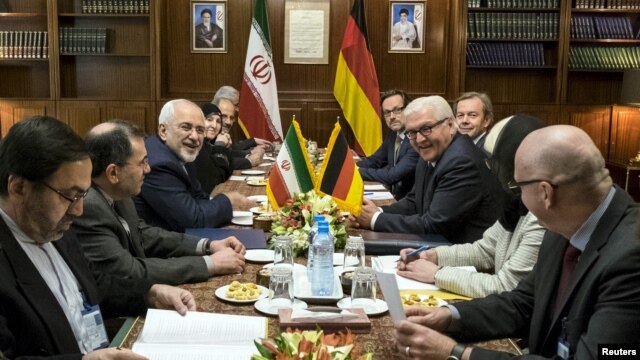

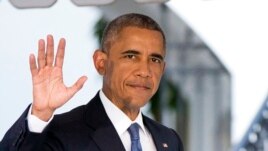
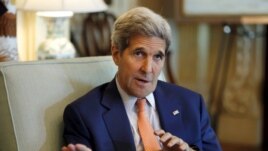
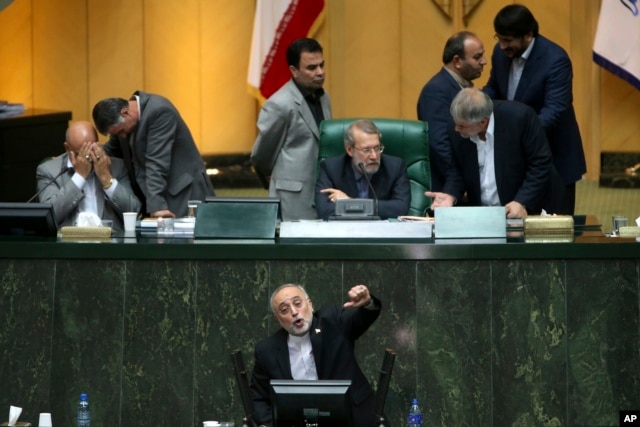
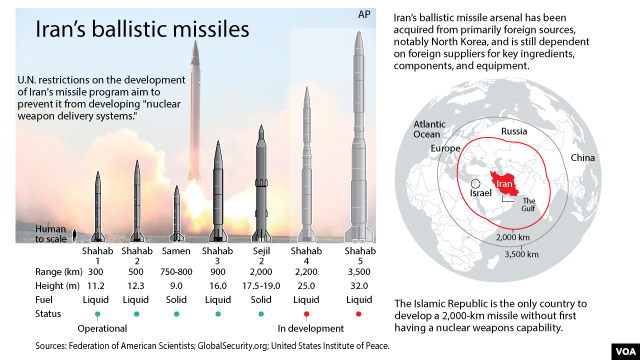
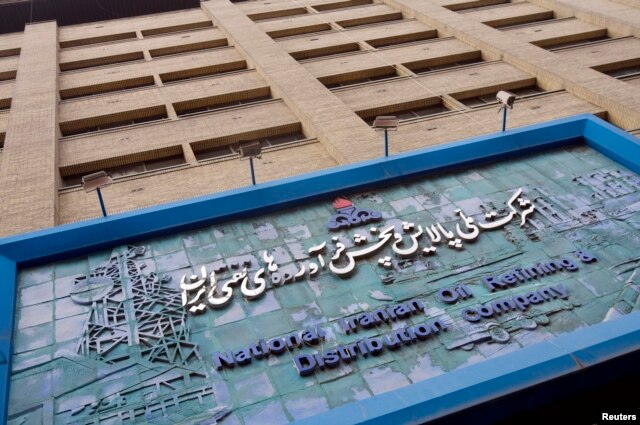

No comments:
Post a Comment